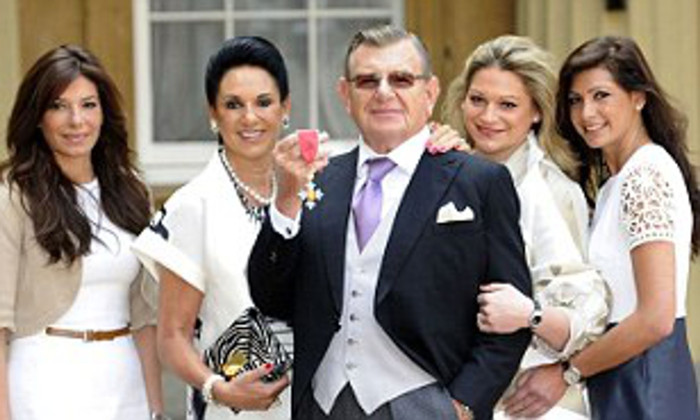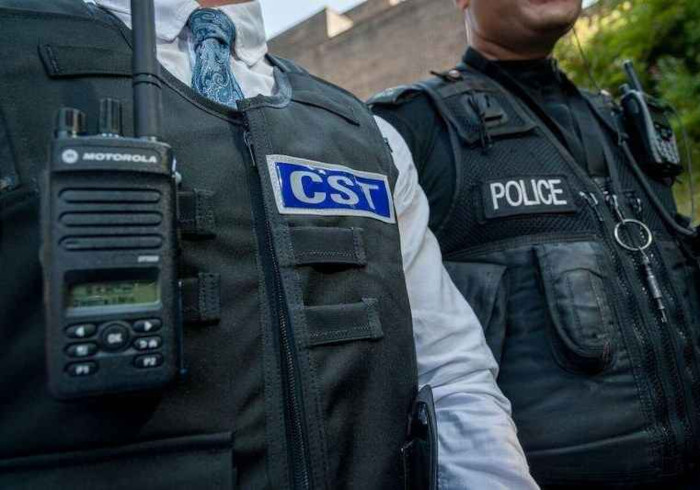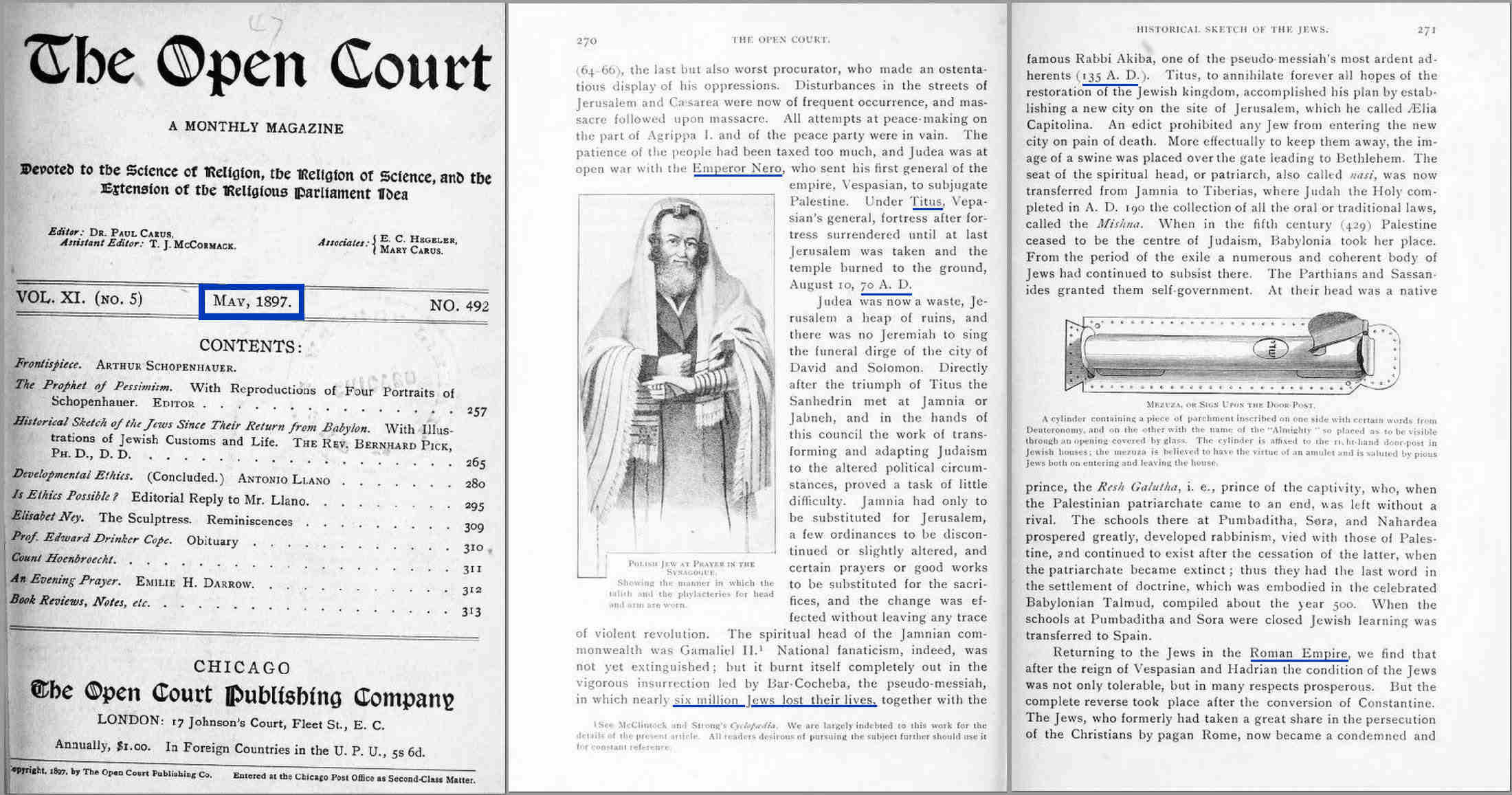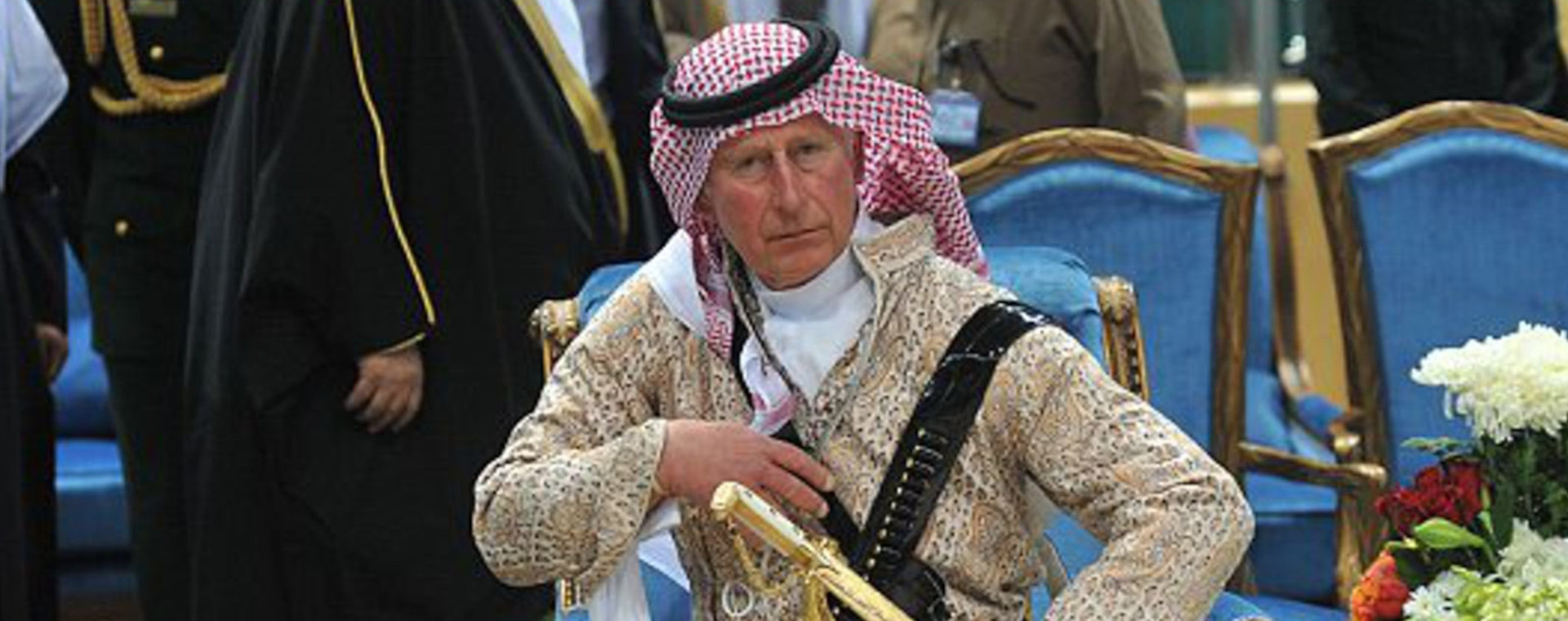
King Charles III corrination declaration will include: "I am determined as King to preserve and promote those principles across ALL communities, and for all beliefs" breaking a constitutional oath vowed 'exclusively' to the Church of England since 1558.
Caliphate Rising
The number of Britons converting to Islam has doubled in 10 years yet more than a third of people in the UK believe that Islam is a threat to the British way of life.
- Introduction
- Colonisation
- Hijra
- Jihad
- Umma
- Sunnah
- Adhan
- Shari'ah law
- Khimār
- Ruqya
- Shahada
- Nikah
- Demographics
- Mosques
- Government
- Extremism
- Talib Al-Abdulmohsen
- Axel Rudakubana
- Reading stabbings
- London Bridge attack
- Manchester Arena bombing
- Jameah Islameah School
- Radicalisation
- Abu Hamza
- Yasser Al-Habib
- Abu Usamah
- Shaykh Zakaullah Saleem
- Abu Izzadeen
- Anjem Choudary
- Ijaz Mian
- Zakir Naik
- Fundermentalism
How dreadful are the curses which Mohammedanism lays on its votaries! Besides the fanatical frenzy, which is as dangerous in a man as hydrophobia in a dog, there is this fearful fatalistic apathy. The effects are apparent in many countries. Improvident habits, slovenly systems of agriculture, sluggish methods of commerce, and insecurity of property exist wherever the followers of the Prophet rule or live. A degraded sensualism deprives this life of its grace and refinement; the next of its dignity and sanctity. The fact that in Mohammedan law every woman must belong to some man as his absolute property – either as a child, a wife, or a concubine – must delay the final extinction of slavery until the faith of Islam has ceased to be a great power among men. Thousands become the brave and loyal soldiers of the faith: all know how to die but the influence of the religion paralyses the social development of those who follow it. No stronger retrograde force exists in the world. Far from being moribund, Mohammedanism is a militant and proselytizing faith. It has already spread throughout Central Africa, raising fearless warriors at every step; and were it not that Christianity is sheltered in the strong arms of science, the science against which it had vainly struggled, the civilisation of modern Europe might fall, as fell the civilisation of ancient Rome.
Perhaps the best parallel is with early communism. Islamic extremism today, like Bolshevism in the past, is an armed doctrine. It is an aggressive ideology promoted by fanatical, well-armed devotees. And, like communism, it requires an all-embracing long-term strategy to defeat it".
Born in France into a secular family, Rav David Touitou, Shass candidate in the city of Ashdod, defines himself as an Orthodox Zionist. He is a rising and influential figure in French-speaking Judaism, Chabad and Breslev movements.
Touitou believes every European is responsible for the historical atrocities committed by Rome. They call our erasure the war of Gog and Magog, the famous and necessary war they have all been waiting for. What we are going through in France, and in Europe, is scary but good news for them. Stating the Messiah will come only when Europe and Christianity have fallen completely.
Show me just what Mohamed brought that was new, and there you will find things only evil and inhuman, such as his command to spread by the sword the faith he preached.
The Gog prophecy is meant to be fulfilled at the approach of what is called the "end of days", but not necessarily the end of the world. One view within Christianity is more starkly apocalyptic, making Gog and Magog, here indicating nations rather than individuals, allies of Satan against God at the end of the millennium, as described in the Book of Revelation.
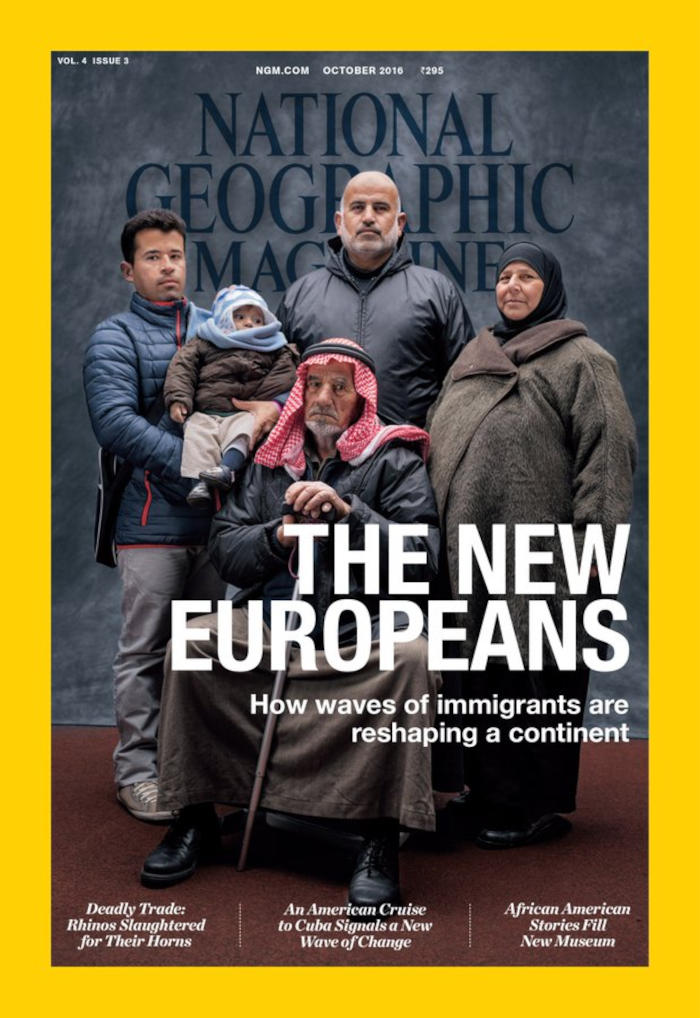
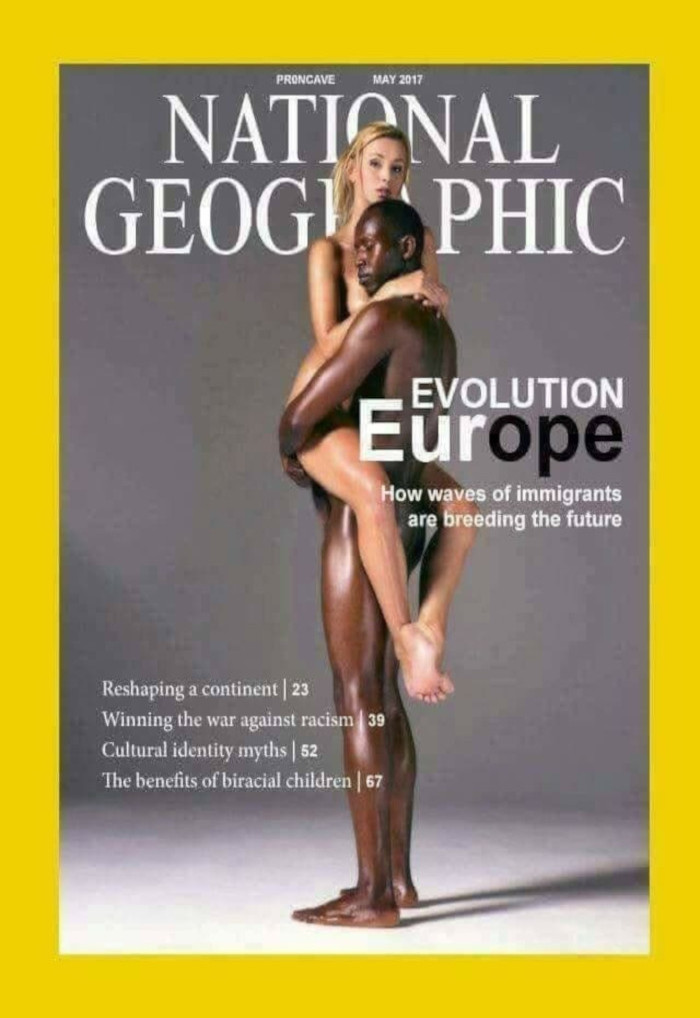
They appear in the Quran in chapter Al-Kahf as Yajuj and Majuj, primitive and immoral tribes that were separated and barriered off by Dhu al-Qarnayn ("He of the Two Horns") who is mentioned in the Quran as a great righteous ruler and conqueror. Some contemporary Muslim historians and geographers regarded the Vikings as the emergence of Gog and Magog.
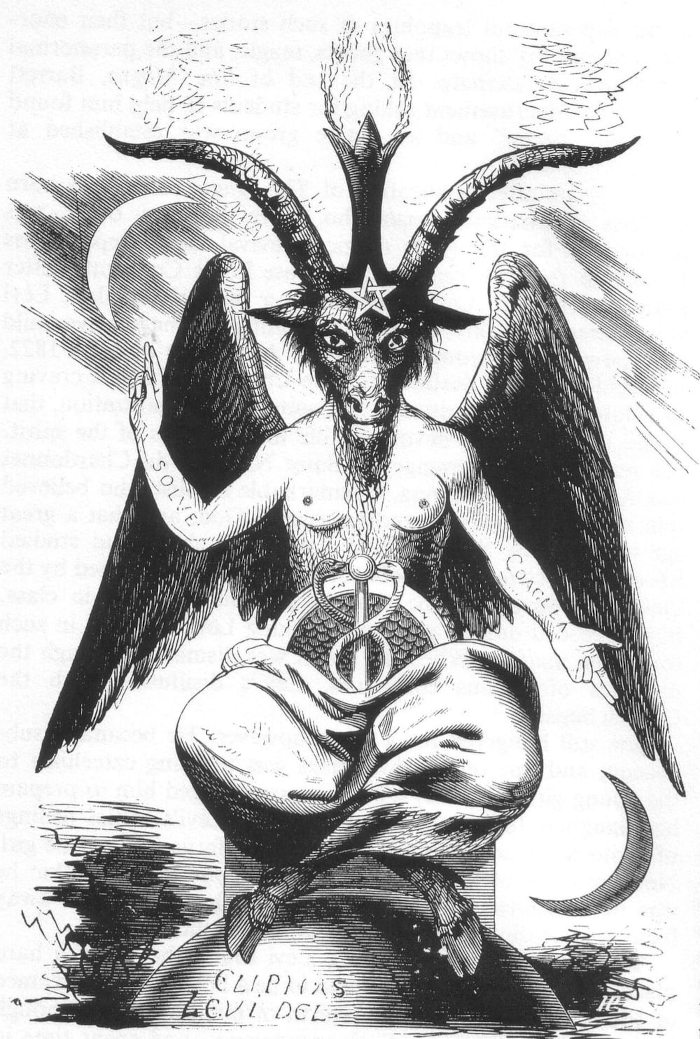
In 1996, the grand mufti of Cyprus, shockingly, accused Charles III - the new British king - of secretly being a Muslim. "Did you know that Prince Charles has converted to Islam. Yes, yes. He is a Muslim. I can't say more. But it happened in Turkey. Oh, yes, he converted all right,” the late Nazim Al-Haqqani said. King Charles even once revealed that he had been learning Arabic in order to understand the Quran better - a fact praised by Cambridge Central Mosque’s imam.
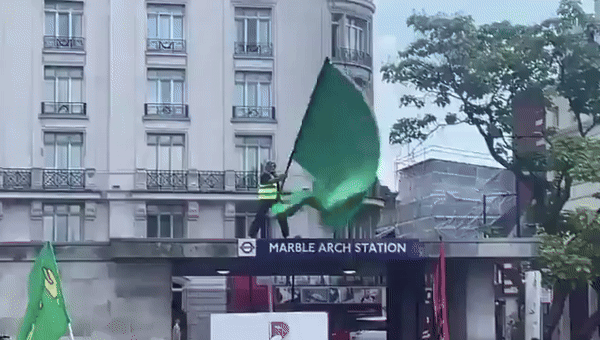
The events of September 11 are a terrible reminder that freedom demands eternal vigilance. And for too long we have not been vigilant. We have harboured those who hated us, tolerated those who threatened us and indulged those who weakened us.
Charles has previously described Islam as possessing “one of the greatest treasuries of accumulated wisdom and spiritual knowledge available to humanity” - a tradition he said was obscured by a drive towards “western materialism”. In a 2013 speech to the World Islamic Economic Forum in London, Charles III displayed detailed knowledge of Islamic finance, and the benefits he believed it could bring to global financial markets.
Colonisation
The action or process of settling among and establishing control over the indigenous people of an area. Below I list three phases of Islamic colonisation drawn from 1400 years of history, i.e Afghanistan was once a Buddhist nation, Pakistan was Hindu and Lebanon was once Christian et al:
- Few in number - Oppressed Islam
- Play the victim.
- Claim Islamophobia.
- More tollerant of others.
- Large minority - Indignant Islam
- Threatening.
- Demand Sharia Law.
- Intolerant of Infidels.
- Clear Marjority - Dominant Islam
- Militant.
- Strict Sharia Law.
- Kill / subdue all Infidels.
As of late 2023 we are in the later stages of phase 2, radicalised hijra politicians such as Scotlands Pakistani first minister Humza Haroon Yousaf are pushing colonialising to phase 3; at this phase moderates are viewed as irrelevant.
Hijra
Hijra in Arabic means 'migration' or 'emigration'. In Islam, the Hijra refers to the 200 mile journey Muhammad made from his hometown of Mecca to the city of Medina in order to escape religious persecution. However, Muslims remember the Hijra not as an act of weakness but instead as a strategic act of triumph that enabled the foundation of the Islamic community. For Muslims, the Hijra is the pivotal moment that changed the face of the world forever. Dr Ibrahim B. Syed argues:
Throughout the history of Islam, the migration was a transitional line between the two major eras regarding to the message of Islam: the era of [Mecca] and the era of [Medina]. In its essence, this signified a transition from one phase to another.
The Hijra was such a crucial defining moment for the early Islamic community that they decided that the Islamic calendar should start with this event. Some of the transitions between the Meccan era and the Medinan era caused by the Hijra included:
- Transition from Muslims representing a small, persecuted religious minority to a strong regional power with allies.
- Transition from an informal group of believers to a political community/state with a strong centralised leadership and constitution. This represented the start of Islam as a political and religious force.
- Transition from a local focus on converting the Quraysh tribe in Mecca to a universal focus on reaching all people with the word of God.
For these reasons, the Hijra is often cited as the beginning of the Islam. Before the Hijra, it is usually argued, Muhammad and his followers were a weak and disorganised group of friends. After the Hijra, this small community became a powerful regional entity which was capable of winning wars against their enemies and conquering new territories.
Jihad
In classical Islamic law (sharia), the term refers to armed struggle against unbelievers, while modernist Islamic scholars generally equate military jihad with defensive warfare. In Sufi circles, spiritual and moral jihad has been traditionally emphasized under the name of greater jihad. The term has gained additional attention in recent decades through its use by various insurgent Islamic extremist, militant Islamist, and terrorist individuals and organisations whose ideology is based on the Islamic notion of jihad.
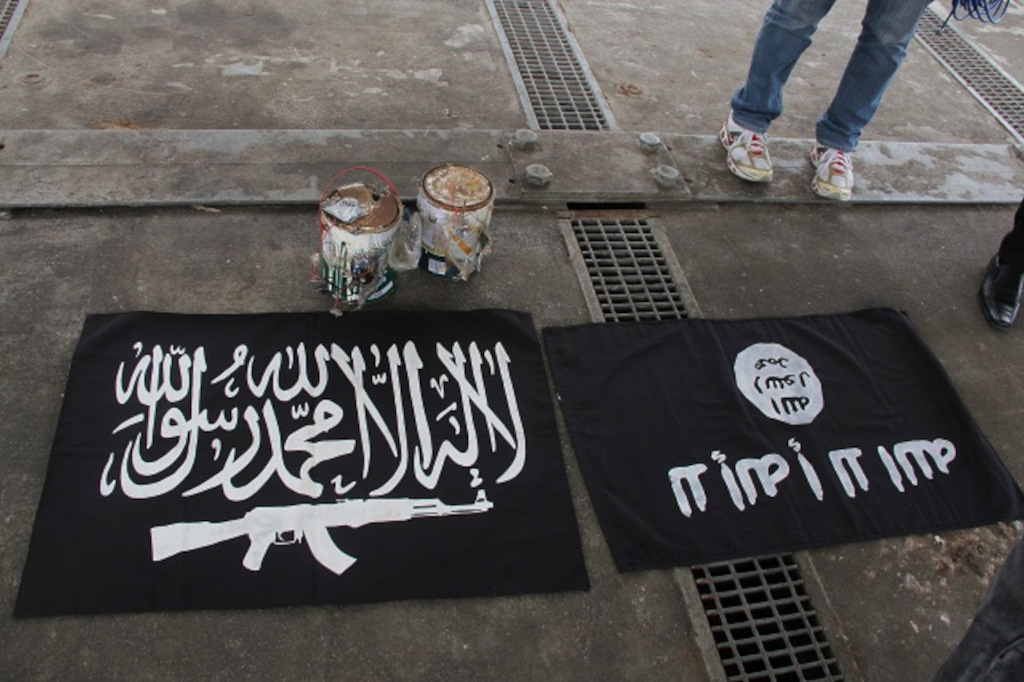
Indeed, the worst of all beings in the sight of Allah are those who persist in disbelief, never to have faith.
Jihad is an Arabic word which literally means "striving" or "struggling", especially with a praiseworthy aim. In an Islamic context, it can refer to almost any effort to make personal and social life conform with God's guidance, such as struggle against one's evil inclinations [inner ("greater")], proselytizing, or efforts toward the moral betterment of the Muslim community (Ummah), though it is most frequently associated with [external ("lesser")] war.
The sense of jihad as armed resistance was first used in the context of persecution faced by Muslims, as when Muhammad was at Mecca, when the community had two choices: emigration (hijra) or jihad. Jihad has traditionally been divided into "greater jihad" (inner struggle against sinful behavior) and "lesser jihad" (military sense). Early Islamic thought considered non-violent interpretations of jihad, especially for those Muslims who could not partake in warfare in distant lands.
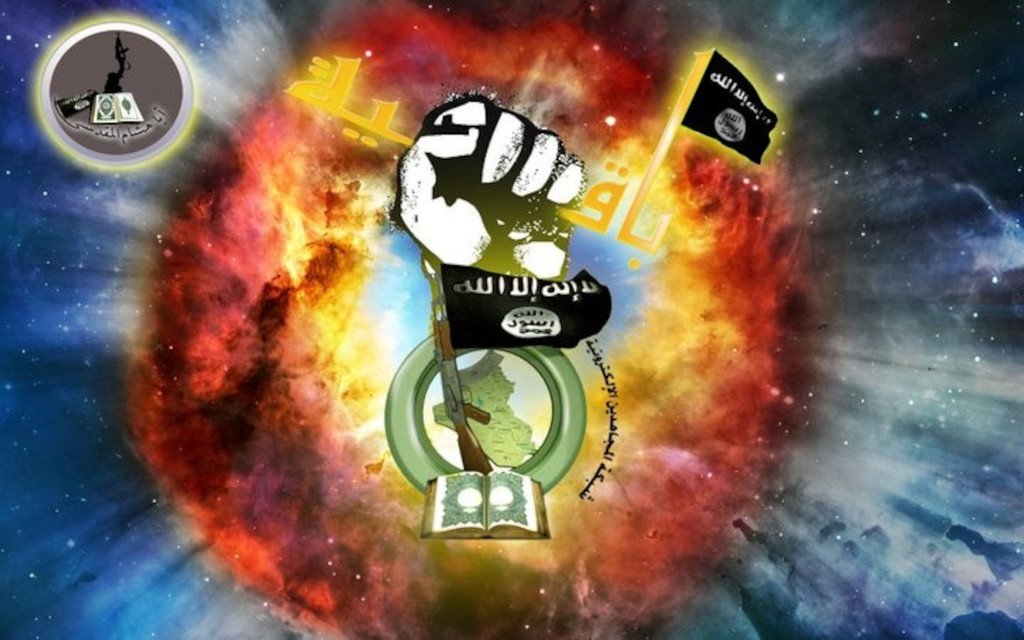
And fight them until there is no Fitnah (mischief), and total obedience becomes for Allah. So, if they desist, then, Allah is indeed watchful over what they do.
Most classical writings use the term jihad in the military sense. Rules of Jihad prohibit attacking or molesting non-combatants, which include women, children under the age of puberty, elderly men, people with disabilities and those who are sick. Diplomats, merchants and peasants are similarly immune from being attacked. Monks are presumed to be non-combatants and thus have immunity too; similarly places of worship should not be attacked. Even if the enemy disregarded the immunity of noncombatants, Muslims could not respond in kind.
They wish you would disbelieve as they disbelieved so you would be alike. So do not take from among them allies until they emigrate for the cause of Allāh. But if they turn away [i.e., refuse], then seize them and kill them [for their betrayal] wherever you find them and take not from among them any ally or helper.
The jihadist flag is a flag commonly used by various Islamist and fundamentalist movements as a symbol of jihad. It usually consists of the Black Standard with a white text of the Shahada (Islamic declaration of faith) emblazoned across it in calligraphy style writing. Its usage was widely adopted by Islamist groups and jihadists during the 1990s and early 2000s. Aside from Islamism, the flag has also been used by various terrorist organisations such as al-Qaeda, Islamic State (ISIS, ISIL/IS/Daesh), al-Shabaab, Chechnyan Mujahideen and Hizbul Islam.
Islam needs to adapt to Swedish values. Muslims who do not integrate should leave the country! Honor killings, clan structures, beheadings, the stoning of women, and Sharia law do not belong here!
The variant used by the Islamic State, and before that by the Islamic State of Iraq (since c. 2006) depicts the second phrase of the shahada in the form of a depiction of the supposedly historical seal of Muhammad. Used in their beheading videos; the flag is banned in a number of states around the world, such as Germany.
Umma
Ummah is an Arabic word meaning "community". It is distinguished from sha'b (شَعْبْ, Arabic pronunciation: [ˈʃaʕb]), which means a nation with common ancestry or geography. Thus, it can be said to be a supra-national community with a common history. In the Quran, the ummah typically refers to a single group that shares common religious beliefs, specifically those that are the objects of a divine plan of salvation. In the context of pan-Islamism and politics, the word ummah can be used to mean the concept of a Commonwealth of the Muslim Believers.
What you are observing in the reel above is shamanism, the vibration and repetition ends up being perfectly coordinated after 1 hour and with that it changes your neurological connections, and you become highly susceptible to being programmed both mentally and spiritually disconnected, you start to function with two levels of communication body and soul, with the soul holding your free will and it was removed through the body's neurology programming, as such you start to serve only the need to fulfill that need, the repetition speeds up the process from 7, 21, 63 and 189 days to a couple of hours for 3 days every 189 days, these rituals are also programmed according to astrology in which the earth's natural electromagnetism is influenced by lunar phases.
The word ummah means nation in Arabic and differs from the concept of a country or people. In its greater context it is used to describe a larger group of people. For example, in Arabic the word sha'ab ("people") would be used to describe the citizens of Turkey. However, the term ummah is used to describe the Turkic peoples as a whole, which includes Turkey as well as the entire Turkish diaspora. There are 62 instances in which the term ummah is mentioned in the Qur'an,[14] and they almost always refer to ethical, linguistic, or religious bodies of people who are subject to the divine plan of salvation. The meaning of the term appears to transform throughout the chronology of the Qur'an.
Sunnah
In Islam, sunnah are the traditions and practices of the Islamic prophet Muhammad that constitute a model for Muslims to follow. The sunnah is what all the Muslims of Muhammad's time evidently saw and followed and passed on to the next generations. According to classical Islamic theories, the sunnah are documented by hadith (the verbally transmitted record of the teachings, deeds and sayings, silent permissions or disapprovals of Muhammad), and along with the Quran (the book of Islam), are the divine revelation (Wahy) delivered through Muhammad that make up the primary sources of Islamic law and belief/theology.
Then she brought out to him [the Prophet] the dough, and he spat in it and invoked for Allah's Blessings in it. Then he proceeded towards our earthenware meat-pot and spat in it and invoked for Allah's Blessings in it.
According to Muslim belief, Muhammad was the best exemplar for Muslims, and several verses in the Quran declare his conduct exemplary, and enjoin his followers to obey him. Sunnah provides a basis not only for major laws and rituals in Islam like how to pray, but for "even the most mundane activities", such as the order in which to cut fingernails or the proper length of a beard. The classical meaning that now prevails was introduced later in the late second century of Islam, when under the influence of the scholar Al-Shafi‘i, Muhammad's example as recorded in hadith was given priority over all other precedents set by other authorities.
Adhan
Adhan is recited from the mosque five times daily, traditionally from the minaret. It is the first call summoning Muslims to enter the mosque for obligatory (fard) prayer (salah). A second call, known as the iqamah, summons those within the mosque to line up for the beginning of the prayers. During the COVID-19 pandemic lockdown several councils gave permission for the call to be broadcast each evening to help followers keep in touch with their places of worship; Mosque elders then planned to apply to councils to make the adhan a permanent fixture after Ramadan.
Allama Sadiq Qureshi, who is an imam at the Minhaj-ul-Quran mosque in Newham, East London, said: 'We want this practice to continue in the future. At least 25 mosques in London and dozens more across the country have joined over the past four weeks. The initiative began when Kensington and Chelsea Council in London gave permission to the borough's biggest mosque, known as the Al-Manaar, to start broadcasting out the nightly reminder. Following that, Waltham Forest Council in North-East London allowed nine mosques in the borough to broadcast the adhan every evening and again on Friday afternoons to mark the beginning of the most important ceremonial prayer of the Muslim week, known as jumuah.
Shari'ah law
Shari'ah law is the law of the Islamic religion and is derived from the Koran. Shari'ah councils call themselves councils because they deal with aspects of Islamic law. It is increasingly running parallel to the UK's own judicial system. Appearing in the UK during the 80s there are around 30 Sharia 'councils' in the UK but these are not Sharia courts of law. Little is known about the councils – even down to how many there are in the UK. Some, like Birmingham’s, are large and long established; others are informal, backroom affairs.
The shari'ah councils are often accused of operating a “parallel legal system” in the UK, but their rulings have no legal standing here or abroad, and they have no enforcement powers. As unofficial bodies, they also have no jurisdiction over custody or financial issues. What they rely on is the weight that religious rulings carry in the Muslim community. Individual imams also carry out the same functions, complicating their definition. Prompted by fears that they were discriminatory, Theresa May launched a government inquiry in May 2016. Just a month later, the Home Affairs Committee announced its own. In December, the Casey Review by Dame Louise Casey into integration included claims that sharia councils:
Supported the values of extremists, condoned wife-beating, ignored marital rape and allowed forced marriages
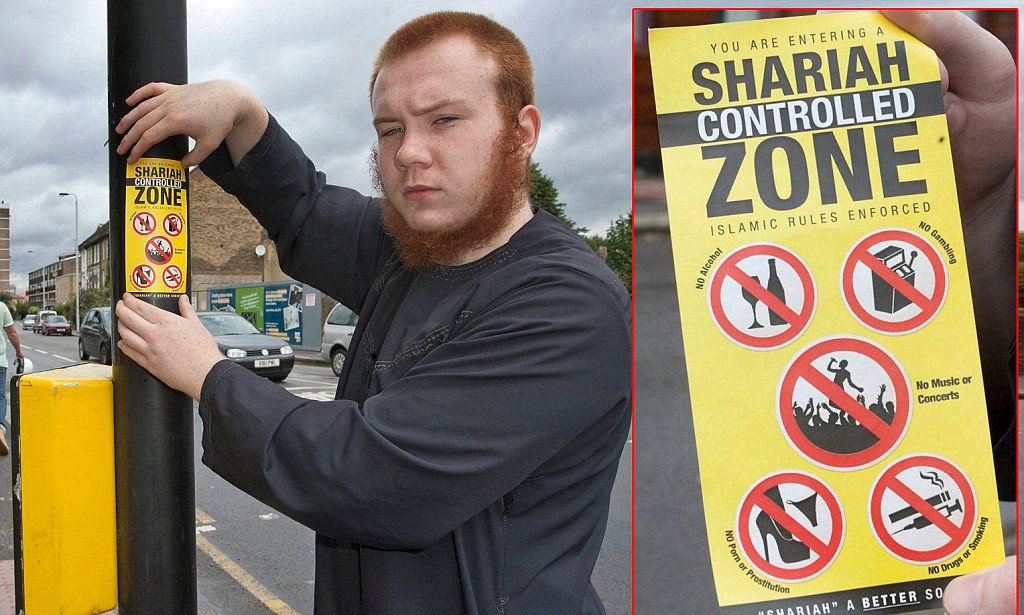
This is the first step towards turning Britain into an Islamic state. There are nearly three million Muslims in this country. Islam is a sleeping giant that is waking. We have moved on from the debate about the provision of halal meat to more political issues. Twenty-five areas around Britain have large Muslim populations, including Bradford, Dewsbury, Leicester and Luton. We want to turn them all into Islamic Emirates, where the excesses of Western civilisation are not tolerated.
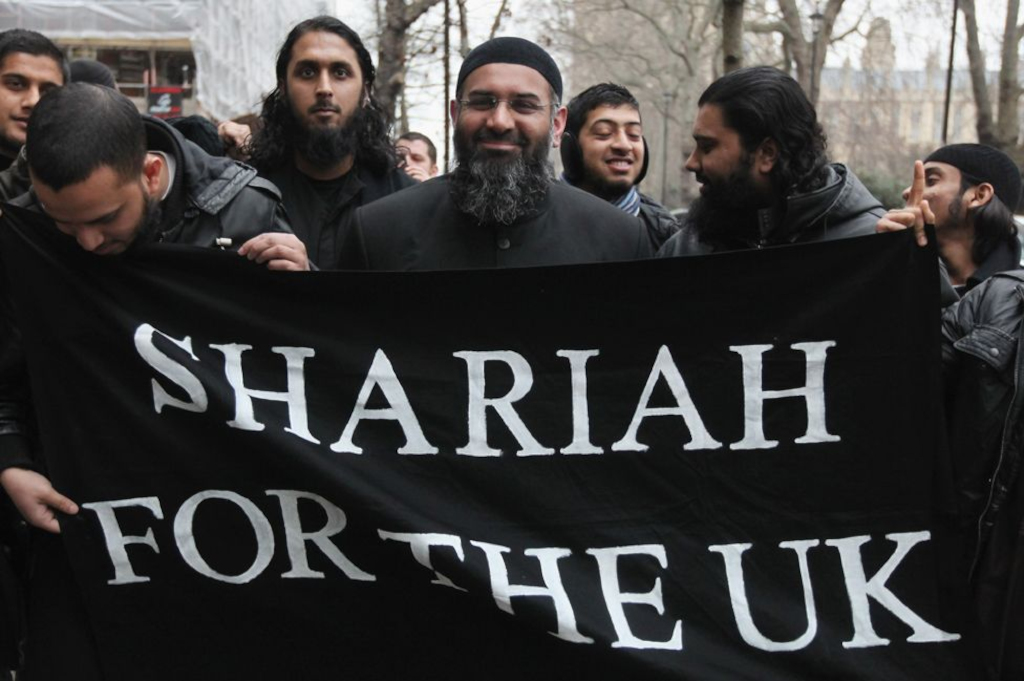
We have hundreds, if not thousands, of people who are willing to go out and make sure our laws are obeyed, this is the best way of dealing with drunkenness, loutishness, prostitution and the sort of thug life you get in Britain.
According to the Association of Chief Police Officers, every year 17,000 Muslim women in Britain become victims of forced marriages, are raped by their husbands or subjected to female genital mutilation — all condoned by more extreme Islamists.
On the 17th Junuary 2024 the UK Government UK government has admitted [FOI Reference: FOI2023/14871] they have no records of cases the Islamic Sharia Council has dealt with meaning Sharia courts are unregulated. Capital punishment in Islam is traditionally regulated by the Islamic law (Shari'ah), which derived from the Quran, ḥadīth literature, and sunnah (accounts of the sayings and living habits attributed to the Islamic prophet Muhammad during his lifetime). Crimes according to the sharīʿa law which could result in capital punishment include apostasy from Islam, murder, rape, adultery, and homosexuality.
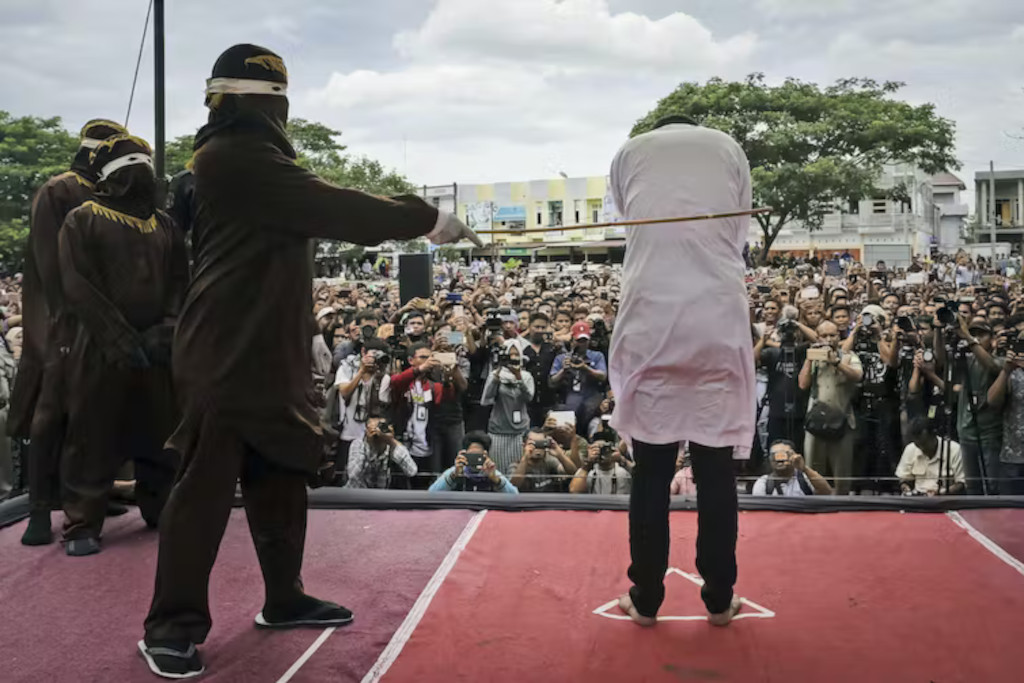
In later times, the sharia is seen by Muslims primarily as an all-embracing legal system which should ideally govern the phases of Islamic life -- though for reasons of public welfare the legists grant the Muslim rulers the right of suspending the application of certain portions of the public law and substituting secular law. The Sharia is not thereby abolished or revoked -- one does not revoke divine law -- it is merely not enforced, because for temporal reasons it may not be feasible at that time and place to do so..
Lethal stoning and beheading in public under sharia is controversial for being a cruel form of capital punishment. These forms of execution remain part of the law enforced in Saudi Arabia, Yemen, Qatar, United Arab Emirates, Iran and Mauritania. Amputation, is the removal of part or all of a body part enclosed by skin.
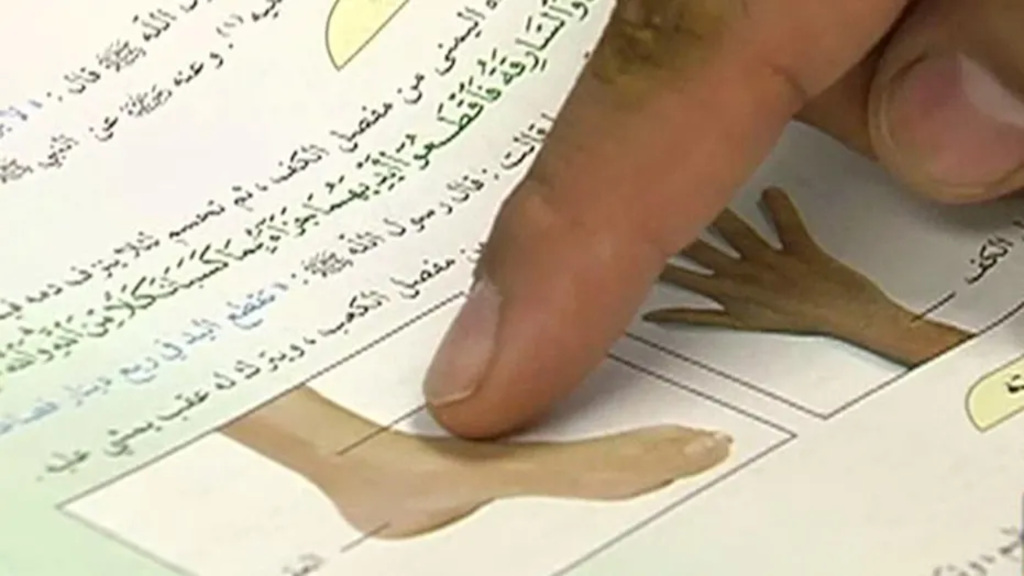
Within the context of Islam, it refers to the removal of the hands or feet. Today in Saudi Arabia, for example, amputation for criminal punishment is not performed by a medical professional but rather by the designated professional executioner who also earns his living beheading people. Muhammad Saad Al-Beshi, Saudi Arabia's leading executioner, describes amputation:
I use a special sharp knife, not a sword. When I cut off a hand I cut it from the joint. If it is a leg the authorities specify where it is to be taken off, so I follow that.
Amputation is used as punishment for theft in Nigeria, which reintroduced shariah law in 1999. This, along with other shari'ah punishments, are "overwhelmingly" supported by the Nigerian Muslim population, and by 2003 three men already had their arms amputated for stealing; a goat, a cow, and two bicycles.
In Somalia, one man found guilty of stealing was put on public display as his hand was severed at the wrist and then dangled by the index finger. In 2008, the Islamic Republic of Iran saw five double amputations in a single week--five convicted robbers were each sentenced to have their right hands and left feet amputated.
Khimār
Qur'anic verses relating to dress codes use the terms khimār (according to some, [a headcovering and jilbāb (a dress or cloak) rather than ḥijāb] About six verses refer specifically to the way a woman should dress and walk in public. The clearest verses on the requirement of modest dress are Surah 24:30–31, telling both men and women to dress and act modestly, with more detail about modest dress focused on women. The word ḥijāb in the Qur'an refers not to women's clothing, but rather a spatial partition or curtain. The interpretations of the ḥijāb as separation can be classified into three types: as visual barrier, physical barrier, and ethical barrier.
The word khimar, in the context of this verse, is sometimes translated as "head coverings". Such head coverings were worn by women in Arabia at the advent of Islam. The Islamic commentators generally agree this verse refers to sexual harassment of women of Medina. It is also seen to refer to a free woman, for which Tabari cites Ibn Abbas. Ibn Kathir states that the jilbab distinguishes free Muslim women from those of Jahiliyyah, so other men know they are free women and not slaves or prostitutes, indicating covering oneself does not apply to non-Muslims.
The four major Sunni schools of thought (Hanafi, Shafi'i, Maliki and Hanbali) hold by consensus that it is obligatory for women to cover their hair, and the entire body except her face and hands, while in the presence of people of the opposite sex other than close family members. Iran went from banning all types of veils in 1936, to making Islamic dress mandatory for women following the Islamic Revolution in 1979. In April 1980, it was decided that women in government offices and educational institutions would be mandated to veil. In Gaza, during the late 1970s and 1980s, there were reports of informal pressure on women to wear the hijab. This was attributed to Mujama' al-Islami, a predecessor of HAMAS, using a combination of consent and coercion to encourage hijab adoption.
On 15 March 2004, France passed a law banning "symbols or clothes through which students conspicuously display their religious affiliation" in public primary schools, middle schools, and secondary schools. In the Belgian city of Maaseik, the niqāb has been banned since 2006. On 13 July 2010, France's lower house of parliament overwhelmingly approved a bill that would ban wearing the Islamic full veil in public. It became the first European country to ban the full-face veil in public places, followed by Belgium, Latvia, Bulgaria, Austria, Denmark and some cantons of Switzerland in the following years.
Belgium banned the full-face veil in 2011 in places like parks and on the streets. In September 2013, the electors of the Swiss canton of Ticino voted in favour of a ban on face veils in public areas. In 2016, Latvia and Bulgaria banned the burqa in public places. In October 2017, wearing a face veil became also illegal in Austria. This ban also includes scarves, masks and clown paint that cover faces to avoid discriminating against Muslim dress. In 2016, Bosnia-Herzegovina's supervising judicial authority upheld a ban on wearing Islamic headscarves in courts and legal institutions, despite protests from the Muslim community that constitutes 40% of the country.
Ruqya
In Islam, the belief that spiritual entities—particularly, jinn—can possess a person, (or a thing or location), is widespread; as is the belief that the jinn and devils can be expelled from the possessed person (or thing/location) through exorcism. Belief in the supernatural—witchcraft, sorcery, magic, ghosts, and demons—in the Muslim world is not marginalized as eccentric or a product of ignorance, but is pervasive among all social classes.
Most of our patients come from the Islamic faith. However we have also helped Christians, Sikhs, Hindus and atheists.
Belief in the supernatural creatures known as Jinn is both an integral part of Islamic belief, and a common explanations in society "for evil, illness, health, wealth, and position in society as well as all mundane and inexplicable phenomena in between". Jinn are thought to be able to enter and possess people, with evil jinn causing various maladies in the humans they possess. According to some Islamic sources, cases of 'pseudopossession', where the origin of someone's seizure or speaking in tongues is "physical or psychological", greatly outnumber cases of true spiritual possession, and it is unfortunate that faith healers have taken money to treat such cases.
Shahada
The Shahada also transliterated as Shahadah, is an Islamic oath and creed, and one of the Five Pillars of Islam and part of the Adhan. It reads: "I bear witness that there is no deity but God, and I bear witness that Muhammad is the Messenger of God.".
The Shahada declares belief in the oneness (tawhid) of God and the acceptance of Muhammad as God's messenger. Some Shias also include a statement of belief in the wilayat of Ali. A single honest recitation of the Shahada is all that is required for a person to become a Muslim according to most traditional schools.
Ihtida
Previous estimates have placed the number of Muslim converts in the UK at between 14,000 and 25,000, but Faith Matters's study suggests that the real figure could be as high as 100,000, with as many as 5,000 new conversions each year.
In October 2018, Sinead O'Connor converted to Islam, calling it "the natural conclusion of any intelligent theologian's journey". The ceremony was conducted in Ireland by Sunni Islamic theologian Shaykh Umar Al-Qadri. She also changed her name to Shuhada' Davitt. On 26 July 2023, O'Connor was found unresponsive at her flat in Herne Hill, South London, and confirmed dead at the age of 56. The cause of death was not stated.
Ridda
Nikah
Pakistani parents in Britain are responsible for 3.4% of all births in England, yet shockingly account for 30% of all children born with recessive gene disorders. This is because the acceptability of first-cousin marriages is ingrained in Muslim culture. In Bradford, 55% of all Pakistanis are married to their first cousins". The city has the second highest number of infant deaths in England and birth disorders involving recessive genes are 10 to 15 per cent higher than the general population, according to a study by St Luke's Hospital, Bradford.
Phil Woolas, the Oldham MP who is now Immigration Minister, caused outrage among Muslim groups in February when he called first cousin marriages the "elephant in the room" but he was supported by Bradford MP Ann Cryer who called for more public information about the risks of such marriages. Former environment minister Phil Woolas was rebuked by Downing Street in 2008 for saying British Pakistanis are fuelling rates of birth defects by marrying their cousins, with the spokesman for then prime minister Gordon Brown saying the issue was not one for ministers to comment on. Research done at Quaid-i-Azam University in Islamabad (the capital of Pakistan) states that more than half of the population of Pakistan marries their first cousin.
The Catholic Church banned first cousin marriage in the 6th century. The Archbishop of Canterbury banned first cousin marriage in the 8th century; Islam has yet, after 1300 years, to ban first cousin marriage..
As of 2003, an average of 45% of married couples were related in the Arab world. While consanguinity is not unique to the Arab or Islamic world, Arab countries have had "some of the highest rates of consanguineous marriages in the world". In some parts of Saudi Arabia, particularly in the south, the rate of marriage among blood relatives ranges from 55 to 70 percent, among the highest rates in the world, according to the Saudi government. Widespread inbreeding in Saudi Arabia has produced several genetic disorders, Saudi public health officials said, including the blood diseases of thalassemia and sickle cell anemia. Spinal muscular atrophy and diabetes are also common, especially in the regions with the longest traditions of marriage between relatives.
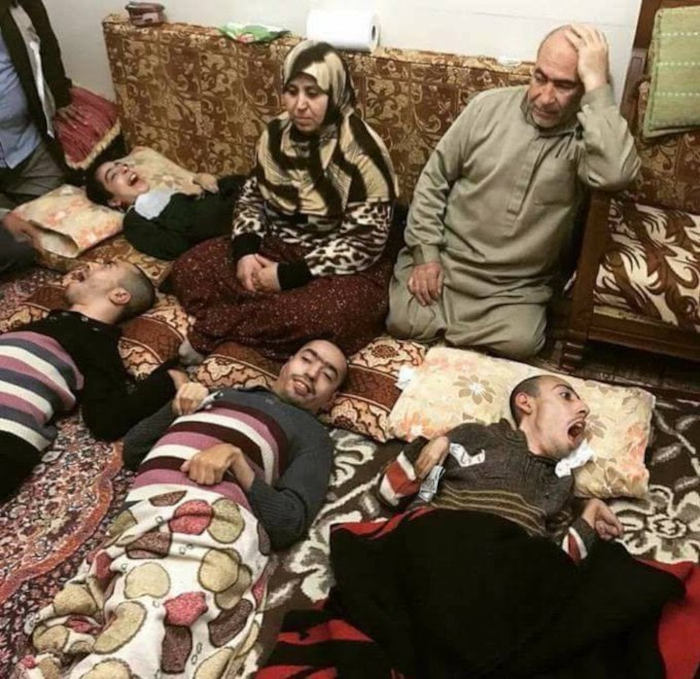
Islamic law allows marriage not by age [no minimum age for marriage is stipulated in Islam] but by maturity, which is attained once a girl reaches the age of puberty. The notion of puberty refers to signs of physical maturity such as the emission of semen or the onset of menstruation". The widespread prevalence of child marriage in the Kingdom of Saudi Arabia has been documented by human rights groups. Saudi clerics have justified the marriage of girls as young as 9, with sanction from the judiciary. Child marriage rates in Bangladesh are amongst the highest in the world. Every 2 out of 3 marriages involve child marriages. According to statistics from 2005, 49% of women then between 25 and 29 were married by the age of 15 in Bangladesh.
Muhammad married Aisha (his favourite wife) when she was just 6 years old and consummated the marriage when she was 9. Muslims consider Muhammad to be the perfect Muslim role model whom they revere, hence this practice of child marriage continues in parts of the Muslim world.
The exact number of child marriages in Pakistan below the age of 13 is unknown, but rising according to the United Nations. Another custom in Pakistan, called swara or vani, involves village elders solving family disputes or settling unpaid debts by marrying off girls. The average marriage age of swara girls is between 5 and 9. According to Population Council, less than 4% of married girls below the age of 19 had some say in choosing her spouse; over 80% were married to a near or distant relative. Child marriage and early motherhood is common in Pakistan.
Demographics
Islam is the second-largest religion in Europe after Christianity. In the late 20th and early 21st centuries, large numbers of Muslims immigrated to Western Europe. By 2010, an estimated 44 million Muslims were living in Europe (6%), including an estimated 19 million in the EU (3.8%). They are projected to compose 8% or 58 million by 2030. According to an article published on the German public broadcaster Deutsche Welle, communities of Muslim immigrants remain strongly religious in some Western-European countries, in a trend which continues across generations. In the United Kingdom, 64% identify as "highly religious", followed by 42% in Austria, 33% in France, and 26% in Switzerland.
As of mid-2016, there were 5.7 million Muslims in France (8.8% of the country’s population) and 5 million Muslims in Germany (6.1%). The EU country in which Muslims make up the largest share of the population is Cyprus: The island nation’s 300,000 Muslims make up about one-quarter (25.4%) of its population.
Between mid-2010 and mid-2016, migration was the biggest factor driving the growth of Muslim populations in Europe. An estimated 2.5 million Muslims came to Europe for reasons other than seeking asylum, such as for employment or to go to school. Natural growth was the secondary driver: Among European Muslims, there were 2.9 million more births than deaths during this period. Religious switching is estimated to be a small factor in Muslim population change, with roughly 160,000 more people switching away from Islam than converting into the faith during this period.
According to a study investigating 67 honor killings in Europe 1989-2009 by psychologist Phyllis Chesler, published in the non-peer reviewed Middle East Quarterly journal, 96% of honor murder perpetrators in Europe were Muslim and 68% of victims were tortured before they died. According to her study, Muslim girls and women are murdered for honor in both the Western world and elsewhere for refusing to wear the hijab or for not wearing it strictly. Allegations of unacceptable "Westernization" of a Muslim woman accounted for 71% of the justifications of honor killings in Europe.
United Kingdom
In 2014, the total population of Muslims in Great Britain was estimated to have increased to 3,115,000, of which about half (1,554,000) were born overseas. Across England and Wales the Muslim population numbered 3,047,000 (97.8% of all UK Muslims) or 5.4% of the total population. In 2011, it was reported that the United Kingdom could have as many as 100,000 converts to Islam, of which 66% were women.
According to the Pew Forum, the total number of Muslims in Europe in 2010 was about 44 million (6%), more than double the total number of Muslims in the European Union in 2010 at about 19 million (3.8%). If the current rate of migration of Muslims to Europe and the Muslim fertility rate remains constant, by 2030, people of Muslim faith or origin are predicted to form about 10% of the French population and 8% of the European population. In 2016, the median age of Muslims throughout Europe was 30.4, 13 years younger than the median for other Europeans (43.8). Looking at it another way, 50% of all European Muslims are under the age of 30, compared with 32% of non-Muslims in Europe. In addition, the average Muslim woman in Europe is expected to have 2.6 children, a full child more than the average non-Muslim woman (1.6 children).
United Kingdom has two of the highest Muslim populations to be found anywhere in Europe, these cities are Bradford at 32.40% and Birmingham at 26.90% Local authorities in England and Wales with the highest percent of Muslims in 2011 were London Borough of Tower Hamlets 34.5% 87,696 and Borough of Newham 32.0% 98,456. In 2030 Muslim births are predicted to modestly exceed Christian births, thus making Islam the world’s fastest-growing major religious group. According to recent projections (sourced by the Telegraph Newspaper) the Muslim population in the UK in the year 2050 is likely to number around 13 million. Women make up a disproportionately large or rising share of converts to Islam in numerous Western countries. According to researchers based at Swansea University, of the approximately 100,000 people who entered the Muslim faith in the United Kingdom between 2001 and 2011, 75% were women.
Mosques
There are estimated to be almost 2,000 mosques and Islamic prayer rooms in the UK, serving 4.1 million Muslims, or 6.3% of the UK population. About 1500 of those Mosques were located in London as of 2016. These mosques in the UK range from humble and small 'house mosques' in residential areas to larger, purpose built mosques such as Regents Park Mosque in London. In Britain, Islam has overtaken Anglicanism as the dominant religion as more people attend mosques than the Church of England. According to one survey, 930,000 Muslims attend a place of worship at least once a week, whereas only 916,000 Anglicans do the same.
Muslim leaders are now claiming that, given such a rise of Islam in Britain, Muslims should receive a share of the privileged status of the Church of England. Overall, at least 10,000 churches have been closed in Britain since 1960, including 8,000 Methodist churches and 1,700 Anglican churches. Another 4,000 churches are set to be closed by 2020, according to Christian Research, an organization that tracks religious trends in Britain. By contrast, there are now more than 1,700 official mosques in Britain, many converted from former churches. In addition, there are an estimated 2,000 Muslim prayer halls and unknown thousands of unofficial mosques in garages or warehouses scattered throughout the country.
Islam is set to displace Christianity in Britain even further in the years ahead. The number of Muslims in Britain is forecast to double to 5.5 million, or 8% of the total British population, by 2030, according to the Washington, DC-based Pew Research Center. British Prime Minister David Cameron, in a December 2011 speech in Oxford on the 400th anniversary of the King James Bible, said Britain is a "Christian country and we should not be afraid to say so.". But the official Citizenship Survey published on December 21 found that the number of people who call themselves Christians in England and Wales fell by nearly 10% over the past five years.
Government
Respect Party
The Respect Party was established in London by Salma Yaqoob in 2004. Arising in the aftermath of the 2003 invasion of Iraq, it grew out of the Stop the War Coalition and from the start revolved largely around opposition to the United Kingdom's role in the Iraq War. Uniting a range of leftist and anti-war groups, it was unofficially allied to the Muslim Association of Britain (MAB) and the Socialist Workers Party (SWP), a far-left, Marxist group. In 2005, Respect's candidate, bandwagon entrepreneur George Galloway was elected MP for Bethnal Green and Bow and the party came second in three other constituencies.
Islam in Britain is now a political force, and not just a religion. Society in this part of London is slowing being changed.
It has been suggested that Respect's connection to religious groups and mosques has been crucial to the party's success in many areas. It attracted some controversy for allegedly being tied to the Islamic Forum of Europe (IFE) [spokesman is Azad Ali, Vice-Chair of Unite Against Fascism (UAF)], a group based at the East London Mosque in Tower Hamlets.
In 2008 Ali is a "leading Muslim networker" in Britain who described Al-Qaeda terrorist Anwar al-Awlaki in 2008 as, "one of my favourite speakers...," and "blogged in favour of a man who argued that it was a duty under jihad to kill British and American troops in Iraq. In 2009, Ali was suspended as a civil servant in the Treasury after he praised Abdullah Yusuf Azzam, Osama bin Laden's key mentor.".
Both The Telegraph and Dispatches [CH4 Britain's Islamic Republic 2010] have alleged that Respect activist Miah is an IFE member, although he has denied this. Respect's second largest single financial donor, Mohammad Naseem held a senior position in the Islamic Party of Britain.
an amalgamation of radical international socialism and Islamism.
Avowedly socialist and opposed to capitalism, it was Eurosceptic and promoted an anti-imperialist worldview. Due to its links with MAB, several commentators claimed that Islamism was a component of its ideology and regarded it as part of a wider alliance between socialists and Islamists within Western Europe. Respect's voting base was primarily among the British Muslim communities in East London, Birmingham and Bradford, where it built upon opposition to the Iraq War and disenchantment among leftist voters with the governing Labour Party.
Sadiq Khan
Sadiq Khan represented the Nation of Islam in 2001 and 2002. Mr Khan was the group’s solicitor in a legal battle to overturn a ban on its leader, Louis Farrakhan, entering the UK. The 15-year order was overturned, but then later reinstated on appeal. Sadiq Khan defended his legal work representing a man who described white people as 'devils' by insisting 'even the worst people need a defence'. The controversial head of the Nation of Islam has been excluded from Britain since 1986 because successive home secretaries feared he would stir up racial unrest. Sadiq Khan, Farrakhan's solicitor, said that there was a double standard in that white supremacists had been allowed into the UK stating:
This case raises double standards in allowing in members of the Ku Klux Klan, racist supporters and admirers of Nazi Germany, yet failing to allow in the leader of a vast section of the black community.
But reports from the time reveal he played a very public role in attempting to get Farrakhan into Britain. At the time, Mr Khan described him as 'the leader of a vast section of the black community'. He also denied that Farrakhan was anti-Semitic or a preacher of racial hatred, saying: 'Mr Farrakhan is not anti-Semitic and does not preach a message of racial hatred and antagonism'. It was as a result of certain remarks in 1984-85 and fears that he would repeat them in the UK that the exclusion order was first made.
An investigation by Disobedient Media determined that Khan has ties not just to organisations associated with ISIS, but also groups such as Hamas, Al-Nusra, Al-Qaeda and the Muslim Brotherhood. During his time as mayor, London has seen an increase in terror incidents with concerning indications that terror groups wish to stage a major attack on the City of London. Rather than focusing on combatting terror, Khan has used his forum to tell Londoners as well as citizens in other parts of Europe and the United States that the West must learn to live with terrorism as a part of daily life.
On September 19th, 2004, Khan spoke at an event which included Ibrahim Hewitt; Hewitt has decreed on record that adultery should be punished by stoning.". Hewitt serves as the Chairman of The Palestinian Relief and Development Fund (Interpal), an organisation which has been labeled as a Terrorist Entity by the United States Department of the Treasury for providing support to Hamas and acting as a part of its funding network in Europe. Despite the US Treasury's designation, then Labour Party Leader Jeremy Corbyn has described Hewitt as a "very good friend."
Khan has openly associated in the past with individuals and organisations tied to Palestinian terror group Hamas. During his time as a legal advocate, Sadiq Khan served as the Chief Legal Advisor of the Muslim Council of Britain's legal affairs committee. Khan was a member of a delegation organized by the Muslim Council of Britain in 2003 to protest what they described as "indiscriminate" arrests of Muslims for alleged terror ties. The Muslim Council of Britain was placed under investigation by the British government over "irregularities" surrounding £1,263,000 in aid given to it by the government. In the past it has admitted to funding groups tied to both Hamas and Palestinian Islamic Jihad and is banned from Israel as a result of its ties to terror.
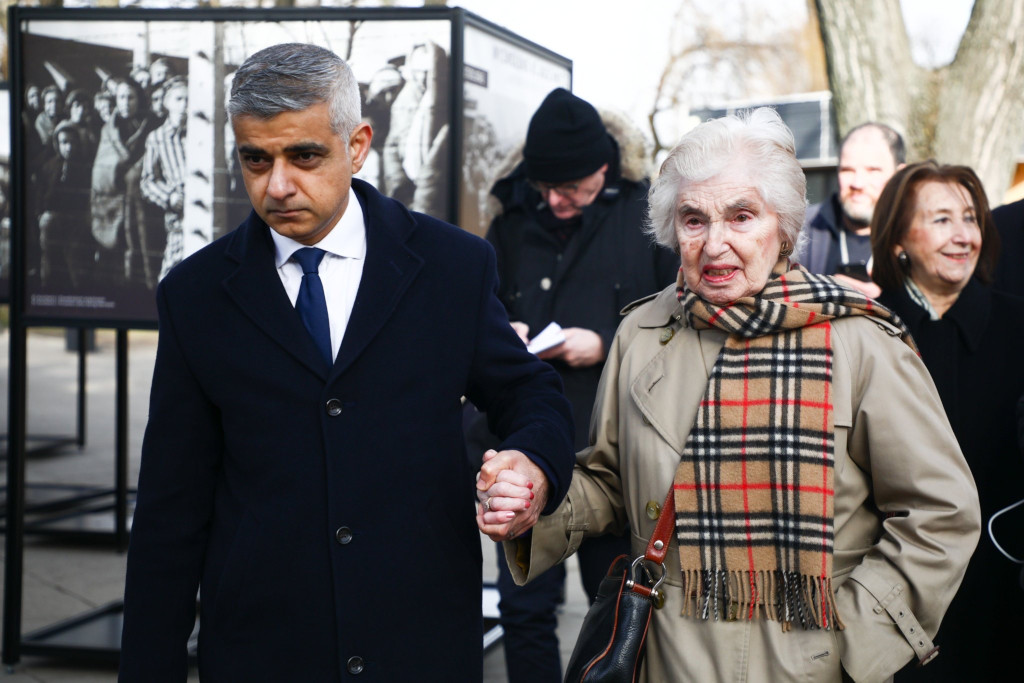
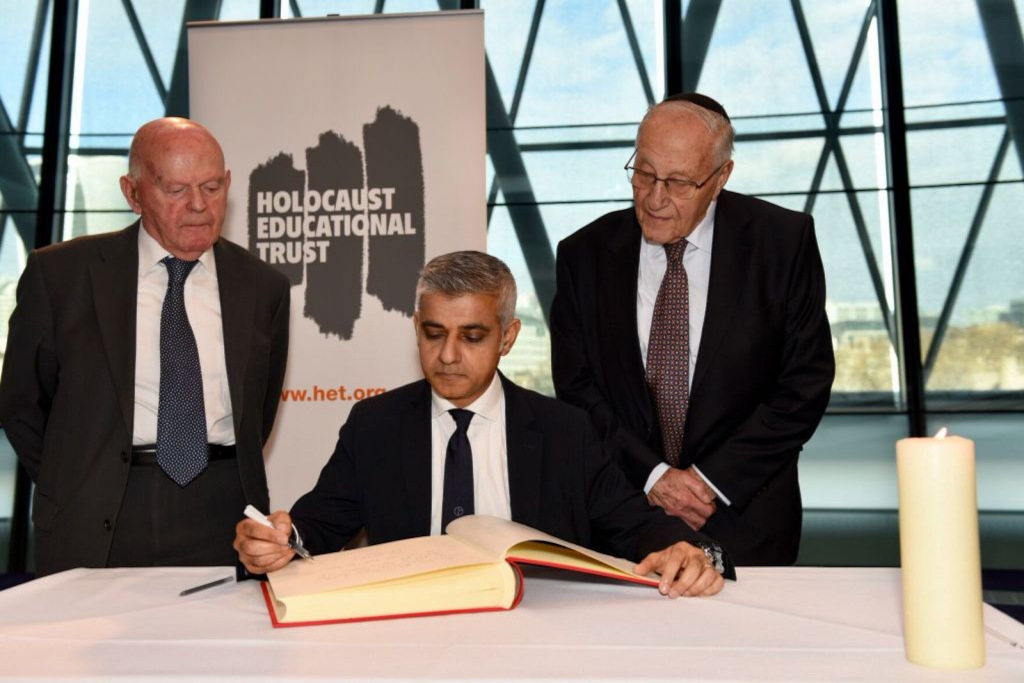
Sadiq Khan was forced to distance himself from a claim on his website that a picture of a young white family “does not represent real Londoners”. The Labour London mayor was criticised over the message, which appeared as part of a guide to his and the Greater London Authority’s (GLA) brand. The guide opened with the words: “A City for All Londoners”, and promised to appeal to all ages, genders, sexual orientations and family make-ups. But a picture of a couple and their two children walking along the Thames, with parliament in the background, was highlighted as an example of pictures not to use. A label on the picture read: “Doesn’t represent real Londoners”. “The document has now been taken off the GLA website and is being reviewed to ensure the language and guidance is appropriate,” a spokesman for the mayor said. Mr Khan’s rival in 2024 mayoral race, Tory candidate Suzan Hall, called for the mayor to apologise.
Khan spoke out in defense of Qatar-based Egyptian cleric Sheikh Yusuf al-Qaradawi, who has praised suicide attacks and decreed that homosexuality is a crime under Islam. Qaradawi has travelled directly to Gaza for the purpose of providing Hamas with ideological legitimacy and stated that Palestinian suicide attacks against the nation of Israel are justified. Qaradawi was also barred from entering into the United States in 1999, the UK in 2008, and France in 2012. In 2007, Khan and Jeremy Corbyn were present at a tenth anniversary celebration of the Palestinian Return Centre (PRC). The PRC is accused by the Israeli government of being affiliated with Hamas and had invited Hamas Minister of Refugee Affairs Atef Ibrahim Adwan to speak at the same event the year before.
In 2009, Khan acted as a member of an international campaign which sought to resist attempts to extradite Babar Ahmad and Syed Talha Ahsan for their role in providing material support to the Taliban and Chechen jihadist groups via a number of websites they ran under the name of Azzam Publications. Ahmad and Ahsan were ultimately extradited to the United States, where they pled guilty to terrorism charges. Khan went to visit Babar Ahmad on multiple occasions between May 21, 2005 and June 2006, while he was being held in Woodhill prison awaiting a ruling on his extradition request. It was reported that Khan visited Ahmad, not in his capacity as an MP, but as a friend, as the two had known each other since they were children.
In September of 2005, in an attempt to thwart Ahmad’s extradition to the United States, Khan presented a petition containing 18,000 signatures to then Home Secretary Charles Clarke, calling for him to be tried in the UK instead. However, Ahmad was ultimately extradited to the US on October 5, 2012, where he was held in custody until his release in July 2015.
Sadiq Khan has historically maintained close relational and professional ties with groups associated with both Al-Qaeda and ISIS. During the 1990's, Khan's brother in law Makbool Javaid gave fiery public addresses advocating jihad and whose name even appeared on a fatwa calling for holy war against the United Kingdom and United States. Javaid was a member of the Islamic group Al-Muhajiroun. Al-Muhajiroun was founded by Islamic hate preacher Omar Bakri Muhammad, who has been banned from the UK since 2005 and acted as a sponsor and recruiter of British jihadists seeking to join ISIS.
Al-Muhajiroun was also lead by Anjem Choudary, a British Islamist who was jailed in 2016 for supporting the Islamic State after he released guides on making bombs and establishing "Muslim gangs" for the purpose of committing terror attacks. Connections to Al-Muhajiroun include Parliament attacker Khalid Masood, Lee Rigby's murderer Michael Adebolajo and Abdul Waheed Majeed, an Al-Nusra affiliated militant who in 2014 became the first British born jihadist to carry out a suicide attack in Syria.
Khan regularly attended Tooting Islamic Center (TIC), which was run by Suliman Ghani. Gani is a vocal supporter of convicted Al Qaeda operative Aafia Siddiqui, as well as a supporter of former Guantanamo Bay detainee Shaker Aamer. Khan has shared a platform with the controversial imam at least nine times between 2004 and 2013.
In 2004, Khan made an "error of judgement" by attending four meetings organized by Stop Political Terror, a group supported by Al-Qaeda in the Arabian Peninsula senior recruiter Anwar al-Awlaki. Stop Political Terror was later merged with the Islamic organization CAGE, who represented the ISIS executioner "Jihadi John" (Mohammed Emwazi) as a "beautiful young man." Khan claimed that he was merely there as part of his efforts to help fight the extradition of convicted terrorist Babar Ahmed to the United States. He has furthermore stated that he condemns CAGE despite his appearances at events organized by their affiliates and the fact that he wrote a forward for a report run by CAGE in 2006.
Humza Haroon Yousaf
Humza Haroon Yousaf is a politician serving as First Minister of Scotland and leader of the Scottish National Party since March 2023. Humza previously served under his predecessor Nicola Sturgeon as justice secretary from 2018 to 2021, introducing a controversial hate crime bill. He then as health secretary from 2021 to 2023; during the later phase of the COVID-19 pandemic and was responsible for the mass roll out of the vaccination programme that began under his predecessor. In 2020, Yousaf expressed support for increasing the racial diversity among top government positions in Scotland. He stated "for 99% of the meetings I go to, I'm the only non-White person in the room [...]. Every chair of every public body is White. That is not good enough.":
Following the announcement of Sturgeon's intention to resign as Leader of the SNP and First Minister of Scotland, Yousaf won the 2023 SNP leadership election, defeating Kate Forbes with 52% to her 48% in the final stage. Yousaf was officially appointed first minister on 29 March 2023, becoming the youngest, first Scottish Asian and Muslim to serve in office. Yousaf is the son of first-generation immigrants: his father Mian Muzaffar Yousaf was born in Mian Channu, Punjab, Pakistan.
This deconstructionist weasel, as a son from first generation immigrants from Pakistan, spurned by his 'inferiority fear of being offended', via the privilege of being allowed governance over the interests of Scottish people he vowed to represent, demanded to take away the rights of a Scotsman to speak his mind freely, openly and unabated within his home; a custom that has been enshrined within laws of hospitality for centuries.
One of his flagship policies was the Hate Crime and Public Order (Scotland) Bill, which he promised would streamline existing legislation as well as add additional protections to persecuted minorities while maintaining rights to freedom of speech and freedom of expression. The bill has been criticised by the Catholic Church, the National Secular Society as well as writers, and in September 2020 it was amended to remove prosecution for cases of unintentionally stirring up hate, which could theoretically include libraries stocking contentious books. In October 2020, Yousaf said that the exception to the Public Order Act 1986 which allows people to use otherwise illegal language in their own homes should be abolished.
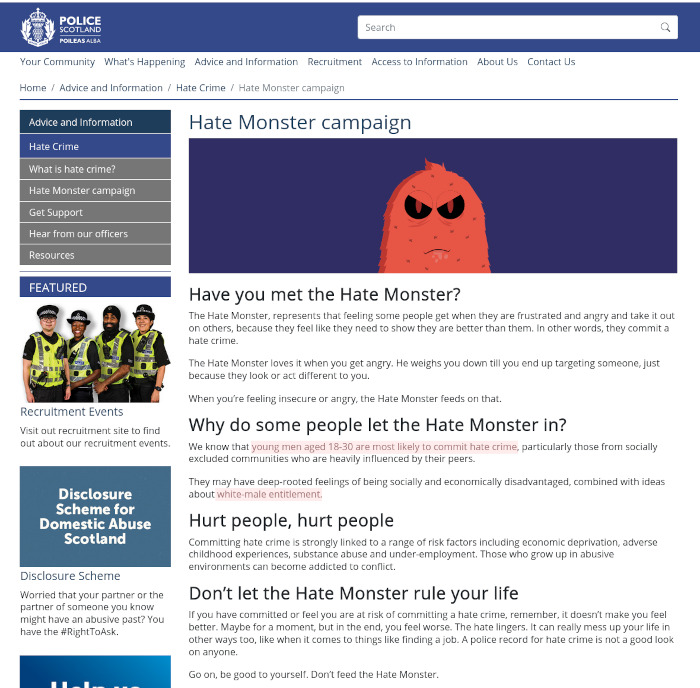
Humza's hate crime bill is a violation of our sovereignty and article 10 of the Human rights act. Article 10 protects peoples right to hold theirown opinions and to express them freely without government interference. This includes the right to express views aloud (for example through public protest and demonstrations) or through:
- Published articles, books or leaflets
- Television or radio broadcasting
- Works of art
- The internet and social media
The law also protects freedom to receive information from other people by, for example, being part of an audience or reading a magazine. This right is particularly important for journalists and other people working in the media. They must be free to criticise the government and our public institutions without fear of prosecution – this is a vital feature of a democratic society. Humza Yousaf's new hate crime laws suggestd offences are mainly committed by 'young white men' from deprived areas. An online character created to back Humza Yousaf's controversial new hate crime laws called the 'Hate Monster' has attracted widespread ridicule after resurfacing online.
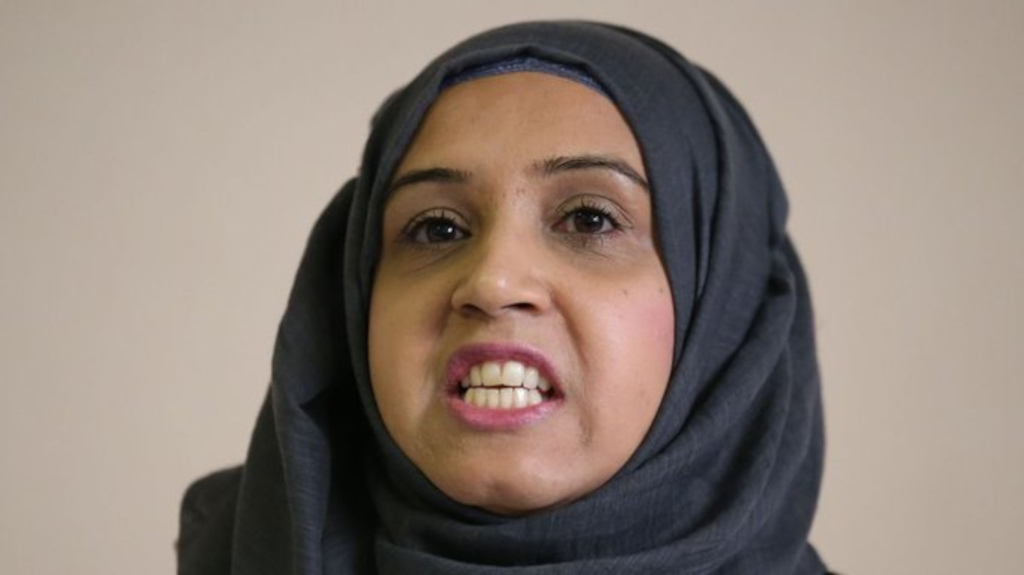
The Hate Monster was created by Police Scotland and launched in 2023 but has only come to prominence this week after a bizarre advert featuring the flurry pink cartoon was shared on social media. In a post on its website, the force said men aged 18-30 from 'socially excluded communities' with 'ideas about white-male entitlement' are particularly likely to be perpetrators of hate crimes.
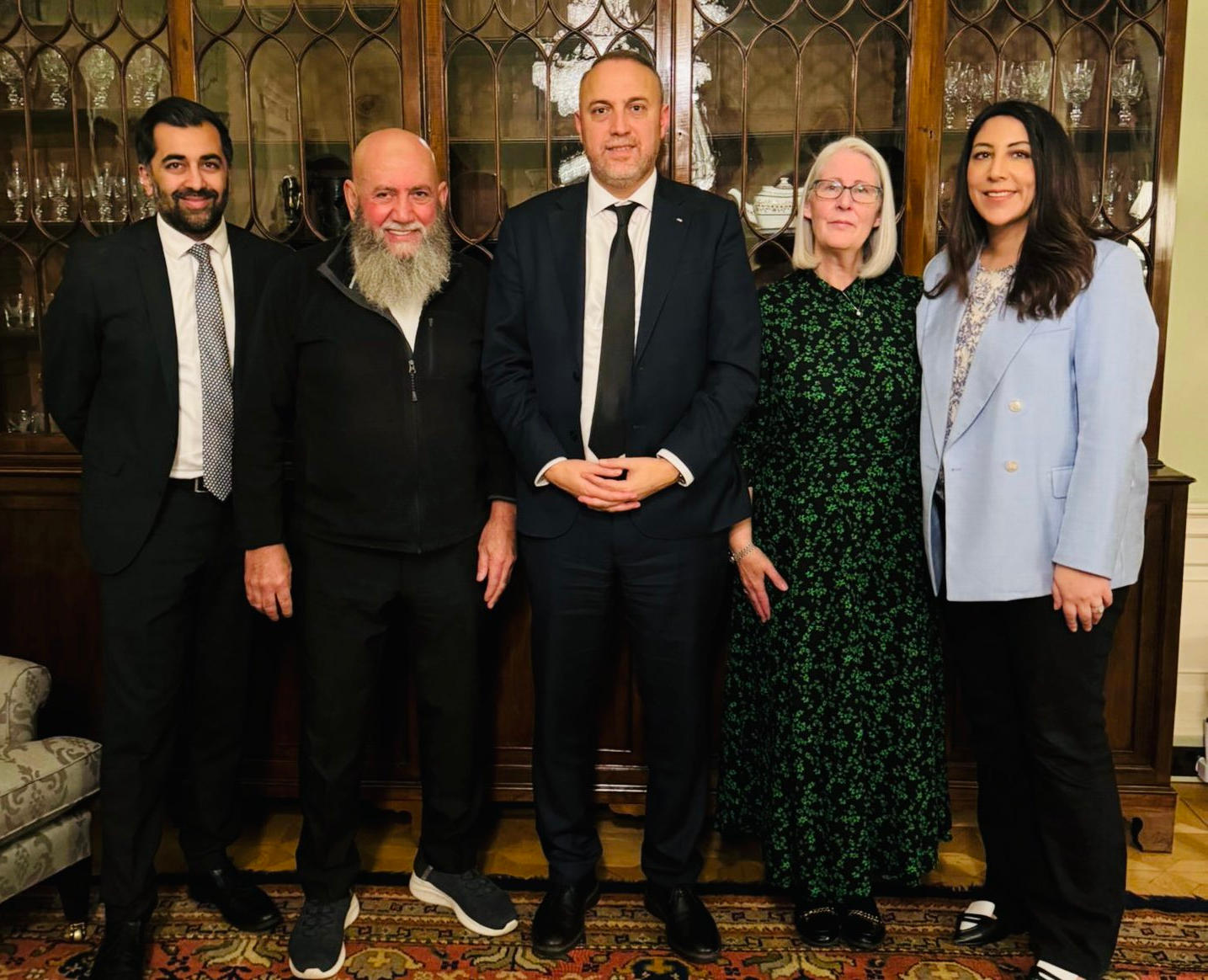
The Scottish Government First Minister Humza Yousaf paid £750,000 as a ransom to HAMAS, via the United Nations organisation "UN Agency for Palestine Refugees" (UNRWA) to enable the extraction and escape of his in-laws from Palestine. For those unaware of UNRWA, they are a UN agency that works hand in glove with HAMAS in Palestine and have perpetuated the 'refugee' myth for over 75 years. Most donor states to this agency have now suspended funding to them due to evidence collated by UNWatch. HAMAS came to power in 2006, immediately cancelling elections, slaughtering PA Fatah politicians and documentation from as far back as 2007, show the efficacy which UNRWA put into place, teachings to indoctrinate the children of Palestine into the HAMAS Islamic death-cult. On the day of Palestine's invasion into Israel 7.10.23, UNRWA teachers, via their telegram chat channel [t.me/UNRWA_EDU] gave an as-it-happened running commentary on the mass slaughter of innocent Israeli people. These posts have since been deleted from that chat channel.
On 7.10.23 Humza Yousaf in-laws, the El-Nakla family were on "holiday" in Gaza, despite advice by the Foreign, Commonwealth & Development Office advising against it. A media campaign ensued in Scotland to encourage sympathy with great exaggerations & propaganda that they were 'trapped' in Gaza as conflict ensued. Exactly one week after the invasion of Israel, the Scottish Government published a press release, detailing that Christina McKelvie (SNP MSP for Hamilton, Larkhall & Stonehouse) was to lead a £500,000 donation to UNRWA. This decision was not debated, approved or otherwise concluded by the Scottish Assembly. The media campaign continued in Scotland, encouraging sympathy for the El-Nakla family, in their idiocy to visit a war zone, to see their son, Mohammad El-Nakla and his family. Mohammad is a doctor on HAMAS' payroll at Nasser HQ Hospital. Brother of the wife of Humza Yousaf. On 2.11.23, the Scottish Government released a 2nd press release, this time detailing the Scottish First Minister, Humza Yousaf had donated a further £250,000 to UNRWA. The Scottish Government has, in it's capacity three pots of funding from which this money could have been sent.
Quite efficaciously, merely 24 hrs after this 2nd tranche of money was paid to UNRWA, the El-Nakla family were escorted from Gaza by their HAMAS guards to the Egyptian border in the south, where they were met by Foreign, Commonwealth & Development Office offcials and flown back to Scotland. On 6.11.23 a freedom of information request was submitted to ask the Scottish Government for a breakdown of these donations. The FOI responded that Christina McKelvie was solely responsible for overseas humanitarian aid and that the money was taken from a purse named 'International development fund'. The International Development Fund (IDF) as stated in that FOI, has specific criteria to meet monies paid out, from it. Neither UNRWA, nor Palestine meets any of the criteria documented. The ransom payments, weren't debated Scottish Government, nor discussed internally by the Scottish Government, nor put to cabinet meetings. They were directives ordered by Humza Yousaf to enable a personal accomlishment. The Scottish Government funded terrorists using taxpayer money, for his current wife, Nadia. It did not end there. During the time the media campaign ensued, both the Scottish National Party and Humza Yousaf and Scottish Labour Anas Sarwar courted Husam Zomlot the chief strategic advisor to HAMAS president Dr. Mohammad Shtayyeh at Holyrood. Their mutual 'fixer' is Naeem Raza.
As of today, the list of countries who have suspended funding to UNRWA:
Australia, Austria, Canada, Estonia, European Union, Finland, France, Germany, Iceland, Italy, Japan, Netherlands, Romania, Sweden, Switzerland and USA.
Naeem Raza, the same fixer who arranged an undocumented meeting between Humza Yousaf and Recep Tayyip Erdoğan at COP28. Erdogan is a dictator who is actively committing genocode against Kurdish people in his region. The El-Nakla Dr's family were flown to Turkey, after this meeting. Naeem Raza the same fixer who organised the meeting between Humza Yousaf and King Charles III. He sits on the caliphate that Yousaf knows as 'The Ummah'. A collective of people with one aim: entrenching world politics with religious (Muslim) zealotry. The ElNakla Ransom is in the first instance an act of gross malfeasance, verging on fraudulent use of public funds and certainly possible that it was money which funded terrorism. Enacted upon by the Scottish Government, Humza Yousaf. Further FOI requests and investigations, are ongoing.
Shahid Rafique
Shahid Rafique Malik became Britain's first Muslim Minister of International Development in 2007, and subsequently served as a Justice Minister and Home Office Minister. In his last Ministerial role at the Department for Communities and Local Government he led the British government's efforts in fighting extremism; overseeing race, faith, and community cohesion; developing The Tames Gateway (the largest development area in Europe); and managing the Fire and Rescue Service Department for Communities and Local Government.
Malik found controversy in February 2007 when he wrote, again in The Times, that the Muslim Council of Britain should "stop whingeing and show leadership." Referring to their decision not to play a part in Holocaust Memorial Day, Malik wrote: "Its flawed moral leadership places the MCB alongside the likes of the BNP leader, Nick Griffin, as nonattendees.". Although over a hundred MPs employed family members in their offices, Malik was found to be the only MP to have employed his father, who was paid between £13,566 to £25,195 per year from the taxpayer-funded MP's Staffing Allowance fund.
Jack Khan
Slum lord Jack Khan, who represented the Rumworth ward in Bolton, left the Labour party to join George Galloway's political party. The founding of the Workers Party of Britain was welcomed by the Communist Party of Great Britain (Marxist–Leninist) (CPGB-ML). Joti Brar, a vice-chair of the CPGB-ML, was elected as the Workers Party of Britain's deputy leader at its founding congress. In the 2021 United Kingdom local elections, the party stood more than 40 candidates for local elections in England.
Khan demanded all officers in Manchester Airport altercation need to be arrested and suspended, or they will unleash protests like “you’ve never seen before”. There was no mention from Khan of the attacked female officer with the broken nose caked in her own blood, suffering from obvious symptoms of PTSD.
Tahir Ali
Tahir Ali is a Labour politician who has served as the Member of Parliament (MP) for Birmingham Hall Green and Moseley, previously Birmingham Hall Green, since 2019. On the political left, he is a member of the Socialist Campaign Group. He is a member of Labour Friends of Palestine and the Middle East. During Prime Minister's Questions on January 24, 2024, Ali stirred controversy around the Israel-Hamas War. He asserted that Prime Minister Rishi Sunak bore responsibility for "the blood of thousands of innocent people on his hands," sparking significant public and parliamentary attention.
According to 2024 polling, 52% of British Muslims would support making it illegal to depict the Prophet Mohammed.
In November 2024, he caused controversy by asking Prime Minister Keir Starmer if he was open to “introducing measures to prohibit the desecration of all religious texts and the prophets of Abrahamic religions”. This was widely interpreted as a call for blasphemy laws. Leader of the opposition Kemi Badenoch MP stated "Some Labour MPs think they’re in parliament to represent other countries against the UK. Tahir Ali’s scripted rant during PMQs was appalling and will please many who despise Britain and our values. Those who think the Labour party changed after Corbyn are not paying attention".
